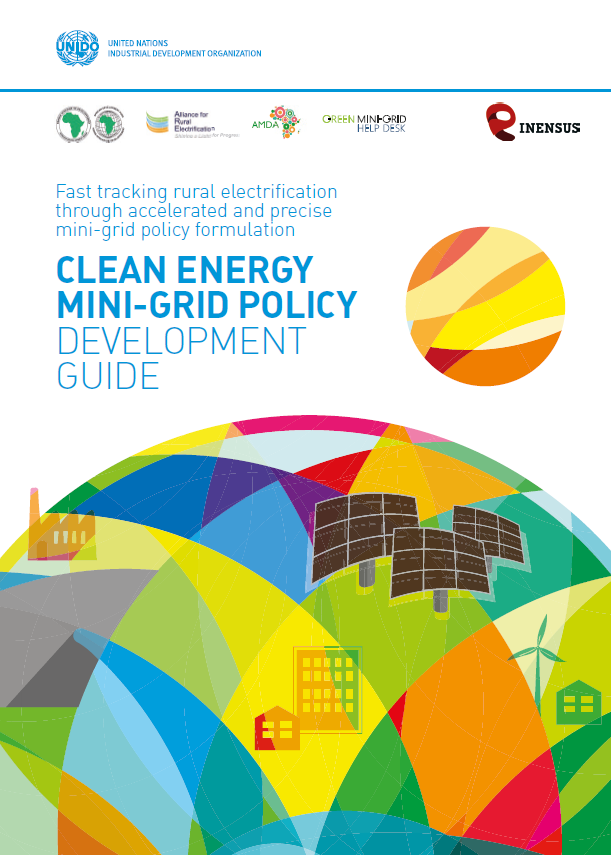Clean Energy Mini-Grid Policy Development Guide
Mini-grids have been identified as a critical tool towards achieving universal electricity access by governments, donors and private sector actors alike. To enable the sustainable deployment of mini-grids, the public and private sector need to cooperate. Policies and regulations which support the most suitable mini-grid delivery models need to be developed to allow the sector to scale. The Clean Energy Mini-Grid Policy Development Guide, developed in partnership by ARE, UNIDO, INENSUS, AfDB Green Mini-Grid Help Desk and AMDA, outlines the various forms and models that public-private cooperation could take and reflects on the outcomes of policy decisions on mini-grid deployment.
While the guide is not exhaustive, it provides an overview of the most important aspects of mini-grid policy, with the aim of supporting policy makers to accelerate mini-grid deployment and to help guide national debates and decision making on rural electrification policies and frameworks.
The guide incorporates lessons learnt from existing mini-grid policies and regulations and presents the key decisions that need to be taken by policymakers in designing the most appropriate mini-grid framework for their country. A decision tree designed for policymakers outlines which combination of key decisions leads to which outcome.
Five critical conclusions may be drawn from the guide:
- Sustainable mini-grid business/delivery models require scale.
- The way in which mini-grids are ultimately deployed, including the degree of private sector involvement, depends on decisions taken by government.
- Large government control over mini-grid deployment, minimum financial subsidies and low end consumer tariffs cannot all be achieved at the same time.
- The development of electricity demand in rural areas is difficult to predict, making it important to introduce demand risk mitigation instruments in the policy framework.
- The risk of a sudden end to the project, i.e. the termination risk, ought to be considered by policy makers and regulators.

